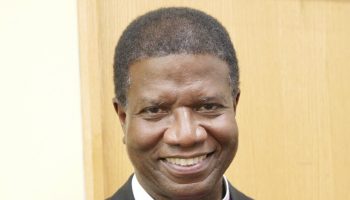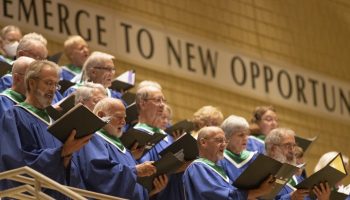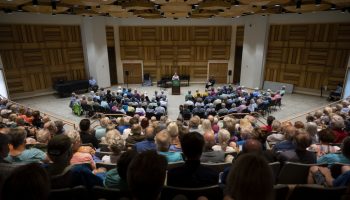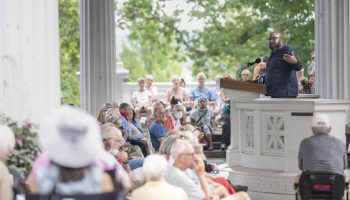At the intersection of psychology and religion, Kelly Bulkeley has found the origins of faith and worship are intertwined with dreams.
To usher in the season’s Interfaith Lecture Series, Bulkeley will give a lecture titled “Big Dreams: The Science of Dreaming and the Origins of Religion” at 2 p.m. Monday in the Hall of Philosophy. With inspiration from the week’s theme, “Inventing God? A Brief History of Religions,” Bulkeley will discuss how dreaming influenced early religions.
“These ancient cultures had the insight to honor their dreams, stimulated their dreams, and learned from their dreams,” Bulkeley said. “We can totally do that. There’s nothing stopping us.”
Bulkeley, founder and director of the Sleep and Dream Database, said he was first inspired to study dreams after experiencing vivid nightmares of his own when he was growing up.
As he began researching his nightmares, he learned about the field of dream research and “big dreams.” That term, coined by psychiatrist Carl Jung, describes dreams that are so vivid and powerful, they are unforgettable and ultimately transformative.
“When you look at the patterns in these dreams … you see that many of the patterns in these dreams are so intense and memorable, they have kind of proto-religious themes,” Bulkeley said.
Bulkeley’s latest book, also titled Big Dreams: The Science of Dreaming and the Origins of Religion, demonstrates that important themes found in all world religions can be traced back to patterns in dreams. He said some of these themes include flying, visits from the dead, supernatural places, terrifying creatures and the apocalypse.
Ancient worshippers are more known for their use of dreams, Bulkeley said, because their cultures valued and respected dreams, and even used rituals to try to stimulate them.
He said he will discuss these cultures, which include Paleolithic peoples, Aboriginals and Native Americans, during his lecture.
Bulkeley said modern society does not value dreams the same way because of misconceptions that dreams are meaningless brain activity. Science has debunked this, however, and Bulkeley said it is still possible for people of all faiths to get in touch with their dreams.
“I think every culture has its own sort of indigenous, local, organic resources in dreaming,” Bulkeley said. “I don’t think we need to start chanting Tibetan prayers, but look in … your own traditions and cultures and you’ll find things.”
One of the suggestions Bulkeley has is to keep a detailed dream journal. Not only can it help with therapy, he said, but it also becomes a personal document that makes the dreamer more self-aware.
“You learn so much about yourself that you just realize, ‘Wow. I am a frail, fragile, finite, limited creature. And I have strengths and virtues and aspirations, too,’” Bulkeley said. “But what comes with that deep exploration is a modesty and a sense of gratitude for life.”





